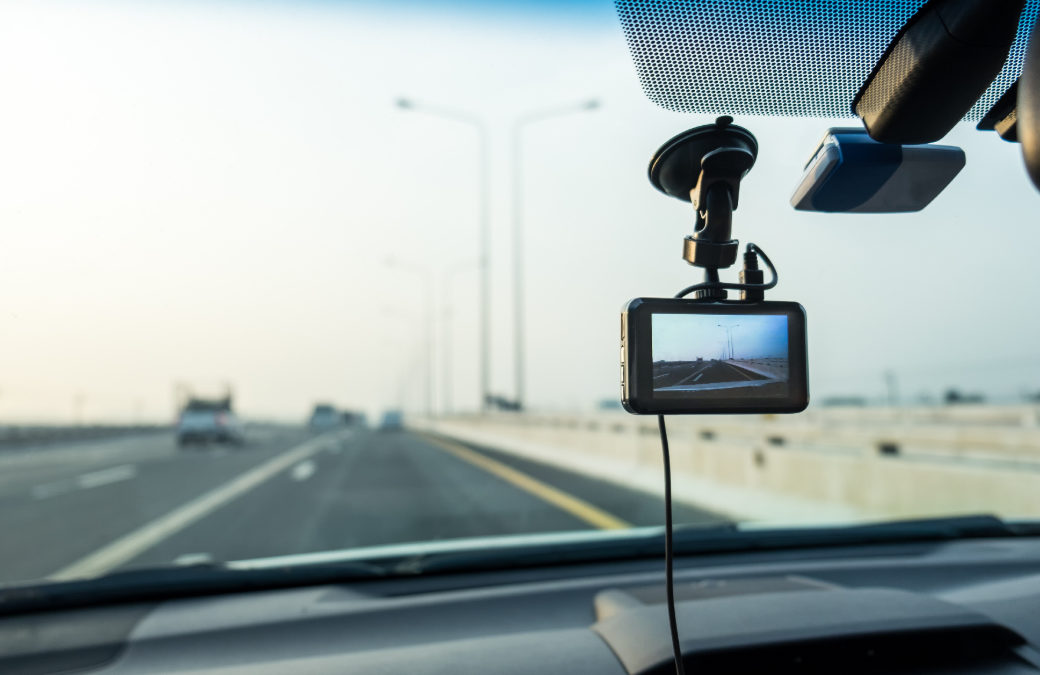Setareh Law
May 23, 2025
Traditionally, dashcam video recorders were primarily used by law enforcement. However, an increasing number of California motorists have opted to install dashcams in their vehicles to help keep them safe and record everything happening in and around their cars. The increased prevalence and use of dashcams have led people to wonder whether the dashcam footage can be used in a car accident claim.
Dashcam Laws in California
California law regulates recording devices and devices placed in their cars, including the dashcam. Additionally, there are restrictions on dashcam size and placement to comply with California traffic safety regulations. Under California law, the dashcams need to be installed outside of the range of airbag deployment and in one of three places:
- A 7-inch square dashcam needs to be placed at the lower right-hand corner of the windshield.
- A 5-inch square dashcam needs to be placed in the lower left-hand corner of the windshield.
- A 5-inch square dashcam needs to be placed on the upper center portion of the windshield.
Dashcams are equipped with audio and video recording, so the driver must post a visible notice to alert the passengers that they are being recorded to comply with California privacy laws. If a passenger refuses to be recorded, the law legally requires the driver to turn off the audio.
Is Dashcam Footage Admissible in Court?
During car accident claims, both drivers assert that the other driver is at fault for the accident. It can sometimes be difficult to prove which driver’s story is factual.
In the absence of credible witnesses, dashcam footage can provide clear evidence of what happened. The footage can show what happened leading up to the crash, during the crash, and the aftermath. California courts generally deem dashcam footage to be admissible in car crash cases.
Do Insurance Companies Accept Dashcam Footage?
While the California courts generally deem dashcam footage admissible in court, many insurance companies have not fully embraced dashcam footage in auto accident claims. Insurance companies consider video evidence to be similar to photographs and do not tend to give dashcam footage additional weight.
In fact, insurance companies do not often mention dashcams in their policies and may argue against their use in court. How an insurance company treats dashcam footage will likely depend on the adjuster assigned to the claim.
How Dashcam Footage Affects Car Accident Claims
Dashcam footage can be highly beneficial in car accident claims. The footage can show that the other driver was negligent and that their negligence caused the accident. A good dashcam can provide useful information such as:
- The other driver’s estimated speed
- The road and weather conditions
- When the driver applied the brakes
- The angle of collision
A dashcam can also show detailed information about the collision. However, this footage does not just show what the other driver did wrong. It may also document you making an error. It’s important to understand that the footage can also be used against you. Defendants who successfully use your dashcam footage against you can limit their liability and cause the insurance companies to reduce or deny any damages you were claiming.
Setareh Law is Here to Help with Your California Car Accident Claim
If another driver’s negligent driving injured you or a loved one, you may be entitled to financial compensation. However, pursuing the fair compensation owed to you or your loved one is not always a straightforward matter. Car accident claims may require legal counsel and representation to protect your right to compensation.
At Setareh Law, we believe in protecting the rights and interests of our clients. If you are unsure if your dashcam footage is beneficial to your claim, it’s important to consult with one of our California personal injury attorneys who can help you make the best decision for your claim. We are proud to offer unmatched legal counsel and service to our clients. We are dedicated to helping you pursue justice. If you have any questions or want to schedule a consultation, fill out our contact form or call (310) 659-1826. We also speak Spanish.


